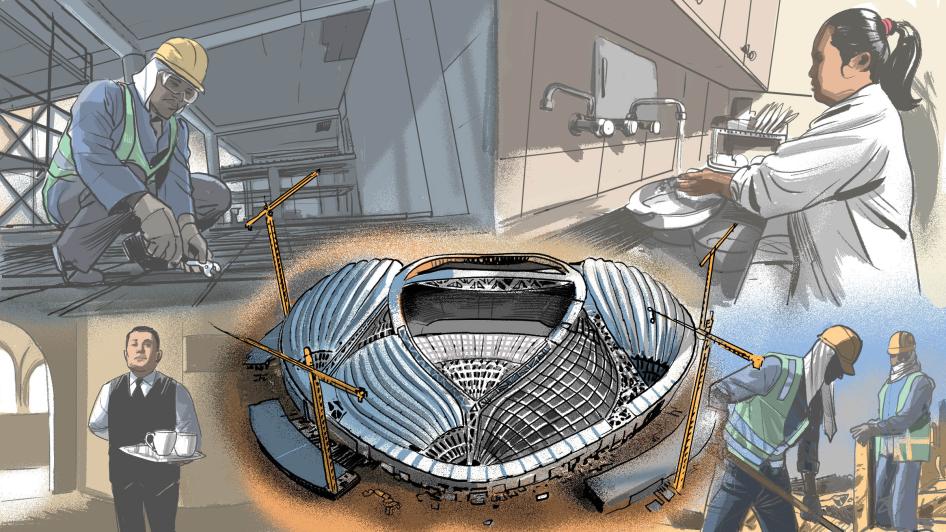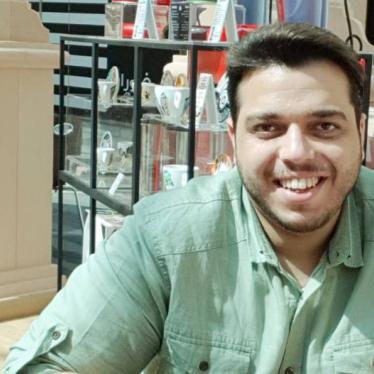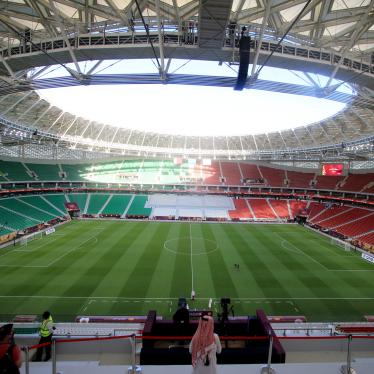In less than a year, Qatar will host the FIFA 2022 World Cup.
The tournament’s final match will be held in the glittering new Lusail Stadium on December 18, 2022, which in a twist of fate also happens to be International Migrants Day.
Since December 2010, when Qatar won its bid to host the 2022 FIFA World Cup, the country has embarked on a massive building spree – restoring or building eight stadiums, as well as hotels, railroads, the international airport, and other major infrastructure. To hit this ambitious construction goal, the state relied almost entirely on the labor of migrant workers, who constitute over 95 percent of Qatar’s workforce. These workers will be equally indispensable in the run-up to the World Cup as Qatar prepares to host over 1.2 million visitors.
But these migrant workers are vulnerable to a range of abuses. True, global pressure has forced Qatar to pledge a series of important reforms to its kafala (sponsorship) system, which ties migrant workers’ legal status to their employers and has facilitated abuses like forced labor and trafficking. While the country has introduced a number of reforms with much fanfare, they have proven to be woefully inadequate in shifting the balance of power to workers and are poorly enforced. Such reform efforts mean little for migrant workers if they continue to face widespread withholding of wages, unexplained deaths, high recruitment costs, and if they are prevented from speaking up about abuses.
To mark both International Migrants Day and the one-year countdown to the World Cup final, this December 18, Human Rights Watch is releasing a Question-and-Answer (Q&A) document that outlines how Qatar has failed to deliver on its reform promises and just how much work is still needed.
It is critical for football associations and others with influence to pressure FIFA and Qatar to live up to their commitments. FIFA should not only push Qatar to introduce real and durable reforms, but to also enforce them so that World Cup 2022 leaves a positive and lasting legacy in Qatar.
If not, next December 18, after the winning team grabs the World Cup trophy, the migrant workers who keep Qatar running will have very little to celebrate.










